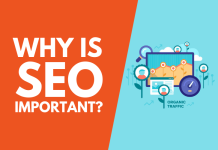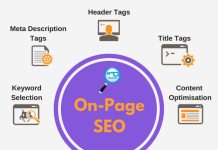Are ClickFunnels Good for SEO?
In today’s digital landscape, achieving a prominent online presence is essential for businesses. Central to this endeavor is Search Engine Optimization (SEO), a set of strategies and techniques aimed at improving a website’s visibility on search engine results pages. As more businesses turn to online marketing and sales funnels to grow their customer base, the question arises: Are ClickFunnels good for SEO?
Understanding ClickFunnels
Before we delve into the impact of ClickFunnels on SEO, let’s get a firm grasp of what ClickFunnels is and how it operates within the realm of digital marketing. ClickFunnels is a popular software tool that simplifies the process of creating sales funnels. These funnels are sequences of web pages designed to guide potential customers through a structured buying journey, ultimately leading to conversions.

ClickFunnels offers a user-friendly interface with drag-and-drop functionality, making it accessible to both experienced marketers and those new to the field. It enables businesses to create landing pages, sales pages, and order forms, all designed to optimize the conversion process.
Given its widespread use, it’s natural to wonder whether ClickFunnels can also play a role in improving your website’s SEO.
The Role of SEO in Online Success
Before we explore the SEO capabilities of ClickFunnels, it’s crucial to understand why SEO matters in the first place. SEO is the cornerstone of organic traffic generation. When potential customers search for products or services online, they turn to search engines like Google. Websites that appear at the top of search results are more likely to receive clicks, traffic, and potential customers.
The factors influencing search engine rankings are numerous and constantly evolving. They include website content quality, keyword optimization, user experience, backlinks, and site speed, among others. To succeed online, businesses need to invest in optimizing these elements to align with search engine algorithms.
ClickFunnels SEO Features
Now that we have a solid understanding of ClickFunnels and the critical role of SEO, let’s dive into the specifics of ClickFunnels’ SEO capabilities. When considering whether ClickFunnels is good for SEO, it’s essential to evaluate the tools and features it offers for optimizing your web content.
- On-Page SEO Optimization: ClickFunnels provides several features that assist in on-page SEO optimization. You can easily customize meta titles, descriptions, and URLs for your landing pages and sales funnels. This level of control enables you to include relevant keywords and create SEO-friendly content.
- Image Optimization: Visual content is a crucial aspect of websites. ClickFunnels allows you to optimize images by adjusting alt text and file names. Properly optimized images not only enhance user experience but also contribute to SEO by improving page load times and accessibility.
- Mobile Responsiveness: With Google’s emphasis on mobile-first indexing, having mobile-responsive web pages is essential for SEO success. ClickFunnels templates are designed to be mobile-friendly, ensuring that your pages perform well on various devices.
- Page Speed: Page load speed is a significant ranking factor for search engines. ClickFunnels is optimized for speed, and its content delivery network (CDN) helps ensure fast loading times. This can positively impact your website’s SEO performance.
- SEO Plugins: ClickFunnels integrates with various SEO plugins, such as Yoast and Rank Math, which can further enhance your SEO efforts. These plugins provide additional insights and tools to fine-tune your on-page SEO.
While ClickFunnels does offer several SEO-friendly features, it’s essential to remember that SEO success depends on various factors, including the quality of your content, keyword research, and backlink strategy. ClickFunnels can aid in on-page optimization, but it’s just one piece of the SEO puzzle.
Pros of Using ClickFunnels for SEO
Now that we’ve explored ClickFunnels’ SEO capabilities, let’s delve into the advantages of incorporating this tool into your SEO strategy. While ClickFunnels is primarily designed for creating sales funnels, it offers several features that can benefit your SEO efforts:
- Streamlined Page Creation: ClickFunnels’ intuitive interface simplifies the process of building landing pages and sales funnels. This ease of use can save you time and effort, allowing you to create and optimize SEO-friendly pages efficiently.
- A/B Testing: ClickFunnels provides A/B testing functionality, enabling you to experiment with different page elements to determine what works best for SEO. You can test variations of headlines, images, and calls to action to optimize your content.
- Conversion Focus: While SEO is essential for driving organic traffic, the ultimate goal is conversions. ClickFunnels is designed with a conversion-centric approach, making it an ideal tool for turning organic traffic into leads or customers.
- Integration Capabilities: ClickFunnels integrates seamlessly with other marketing tools and platforms. This means you can combine the power of ClickFunnels with your existing SEO and marketing stack for a comprehensive strategy.
- User-Friendly Analytics: ClickFunnels provides analytics and tracking features that allow you to monitor the performance of your pages. This data can help you refine your SEO strategy by identifying which pages are generating the most organic traffic and conversions.
It’s important to note that ClickFunnels should complement your overall SEO strategy. While it excels in certain areas, such as page creation and conversion optimization, other aspects of SEO, like off-page optimization and content quality, should not be overlooked.
Cons of Using ClickFunnels for SEO
While ClickFunnels offers several advantages for marketers and businesses, it’s essential to consider the potential drawbacks and challenges when using it for SEO optimization. Here are some aspects to keep in mind:
- Limited SEO Customization: ClickFunnels provides SEO customization options, but they may be somewhat limited compared to dedicated CMS platforms. If you require extensive SEO flexibility or have unique optimization needs, you might find ClickFunnels’ constraints restrictive.
- Template-Driven Design: ClickFunnels relies heavily on templates for page creation. While these templates are user-friendly and can save time, they might not offer the level of design and content customization needed to meet specific SEO requirements.
- Content Management: ClickFunnels is primarily designed for creating sales-focused pages. Managing and organizing a large volume of content, such as a blog or information-rich website, can be less efficient compared to traditional content management systems like WordPress.
- Cost Considerations: ClickFunnels is a paid platform, and its pricing can be substantial, especially for small businesses and startups. Balancing the cost of ClickFunnels with potential SEO benefits is an important consideration.
- Learning Curve: While ClickFunnels is user-friendly, there is still a learning curve, especially for those new to the platform. Investing time in learning to use it effectively can impact your SEO strategy.
It’s crucial to weigh these potential drawbacks against the advantages when deciding whether ClickFunnels is the right fit for your SEO needs. For some businesses, ClickFunnels’ ease of use and conversion-focused features may outweigh these limitations, while others may prefer more robust content management and SEO customization options.
Real-World Examples
To gain a better understanding of how ClickFunnels can impact SEO in real-world scenarios, let’s explore a few businesses that have successfully utilized ClickFunnels as part of their SEO strategy.
1. E-commerce Success Story: An e-commerce store selling fitness equipment decided to use ClickFunnels to create a high-converting product page. By optimizing their ClickFunnels page with relevant keywords, compelling product descriptions, and clear calls to action, they not only improved their conversion rate but also saw an increase in organic traffic. This case illustrates how ClickFunnels can effectively merge SEO and conversion optimization efforts.
2. Lead Generation Boost: A digital marketing agency integrated ClickFunnels into its lead generation strategy. They created landing pages for various service offerings and optimized them for relevant keywords. With ClickFunnels’ A/B testing features, they fine-tuned their pages for better SEO performance. As a result, they attracted more organic traffic and qualified leads, demonstrating the synergy between ClickFunnels and SEO.
3. Local Business Success: A local restaurant looking to improve its online visibility and attract more customers turned to ClickFunnels. They optimized their website’s landing pages for local SEO, including location-based keywords and Google My Business integration. This led to a significant increase in local search rankings and, ultimately, more foot traffic to their restaurant.
These real-world examples illustrate how ClickFunnels can be a valuable tool for businesses seeking to enhance their SEO efforts. However, it’s important to note that the success of these businesses also depended on factors like content quality, keyword research, and strategic planning.
In the following sections, we’ll address common questions and concerns related to ClickFunnels and SEO, providing further insights into its practical application and potential challenges.
Common Queries
How does ClickFunnels impact website loading speed?
ClickFunnels is optimized for speed, thanks to its content delivery network (CDN) and efficient hosting infrastructure. By using ClickFunnels, you can benefit from faster page load times, which is a positive factor for SEO. However, it’s essential to optimize your images and minimize unnecessary elements on your pages to further enhance loading speed.
Is ClickFunnels suitable for e-commerce websites from an SEO perspective?
ClickFunnels can be a valuable tool for e-commerce websites, especially when it comes to creating high-converting product pages. It offers features for on-page SEO optimization, and when used strategically, it can improve the SEO performance of your product listings. However, for larger e-commerce sites with extensive product catalogs, a dedicated e-commerce platform may provide more advanced SEO options.
Can I use ClickFunnels alongside other SEO tools?
Yes, you can integrate ClickFunnels with various SEO plugins and tools like Yoast or Rank Math. This allows you to combine the benefits of ClickFunnels’ conversion-focused features with the in-depth SEO analysis provided by these plugins. It’s a complementary approach that can enhance your overall SEO strategy.
What are the potential SEO pitfalls when using ClickFunnels?
While ClickFunnels offers SEO features, it’s important to be aware of potential pitfalls. These may include limited customization options for certain design elements, template-driven page creation, and the need to adapt your SEO strategy to fit within ClickFunnels’ framework. Successful SEO with ClickFunnels often requires a balance between its features and traditional SEO best practices.
How can I measure the SEO performance of my ClickFunnels pages?
To measure the SEO performance of your ClickFunnels pages, you can use tools like Google Analytics and Google Search Console. These tools provide insights into organic traffic, keyword rankings, click-through rates, and more. Regularly monitor these metrics to assess the effectiveness of your SEO efforts within ClickFunnels.
In the final section of this article, we’ll conclude our exploration of whether ClickFunnels is good for SEO. We’ll summarize key takeaways and guide making an informed decision for your online business.
FAQs – ClickFunnels and SEO
Q1: How does ClickFunnels impact website loading speed?
A1: ClickFunnels is optimized for speed, thanks to its content delivery network (CDN) and efficient hosting infrastructure. By using ClickFunnels, you can benefit from faster page load times, which is a positive factor for SEO. However, it’s essential to optimize your images and minimize unnecessary elements on your pages to further enhance loading speed.
Q2: Is ClickFunnels suitable for e-commerce websites from an SEO perspective?
A2: ClickFunnels can be a valuable tool for e-commerce websites, especially when it comes to creating high-converting product pages. It offers features for on-page SEO optimization, and when used strategically, it can improve the SEO performance of your product listings. However, for larger e-commerce sites with extensive product catalogs, a dedicated e-commerce platform may provide more advanced SEO options.
Q3: Can I use ClickFunnels alongside other SEO tools?
A3: Yes, you can integrate ClickFunnels with various SEO plugins and tools like Yoast or Rank Math. This allows you to combine the benefits of ClickFunnels’ conversion-focused features with the in-depth SEO analysis provided by these plugins. It’s a complementary approach that can enhance your overall SEO strategy.
Q4: What are the potential SEO pitfalls when using ClickFunnels?
A4: While ClickFunnels offers SEO features, it’s important to be aware of potential pitfalls. These may include limited customization options for certain design elements, template-driven page creation, and the need to adapt your SEO strategy to fit within ClickFunnels’ framework. Successful SEO with ClickFunnels often requires a balance between its features and traditional SEO best practices.
Q5: How can I measure the SEO performance of my ClickFunnels pages?
A5: To measure the SEO performance of your ClickFunnels pages, you can use tools like Google Analytics and Google Search Console. These tools provide insights into organic traffic, keyword rankings, click-through rates, and more. Regularly monitor these metrics to assess the effectiveness of your SEO efforts within ClickFunnels.
Q6: Does ClickFunnels offer schema markup for SEO?
A6: Currently, ClickFunnels does not provide native support for schema markup. However, you can manually add schema markup to your pages using custom code. Schema markup can enhance the visibility of your content in search engine results by providing structured data to search engines.
Q7: Can ClickFunnels help with local SEO optimization?
A7: Yes, ClickFunnels can be used for local SEO optimization. You can create landing pages tailored to specific locations, optimize them for local keywords, and integrate Google My Business information. This can improve your local search rankings and attract nearby customers.
Q8: Are there any limitations to SEO-friendly URL customization in ClickFunnels?
A8: ClickFunnels allows for URL customization, but it’s essential to note that the degree of customization may be limited compared to some other content management systems. While you can adjust URLs, they are often structured within the framework of your funnels and templates.
Q9: Does ClickFunnels have built-in tools for keyword research?
A9: ClickFunnels does not include dedicated keyword research tools. To conduct keyword research for your ClickFunnels pages, you may need to use external keyword research tools or platforms like Google Keyword Planner or third-party SEO plugins.
Q10: Can ClickFunnels be used for content marketing alongside SEO?
A10: Yes, ClickFunnels can be integrated into your content marketing strategy. You can create landing pages to promote content such as ebooks, webinars, or blog posts. By optimizing these pages for SEO, you can attract organic traffic and engage your audience with valuable content.
These FAQs provide valuable insights into using ClickFunnels for SEO and address common queries that businesses may have when considering its integration into their online marketing strategy.




